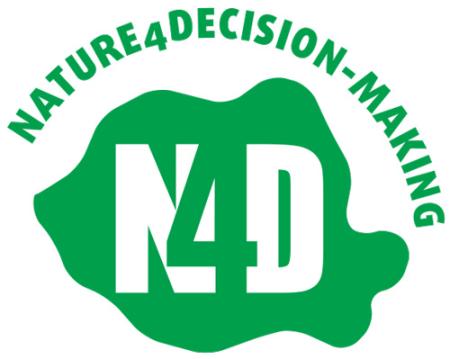
Area characterisation:
Romanian national territory was assessd based on EUNIS level 3 classification of priorities ecosystems like urban, agricultural, freshwater and forest ecosystems. The CICES ecosystems services clasification was used to identify the priorities of assessments. N4D is mainly addressed to national policy and decision makers as well as government administrations and institutions responsible for implementing national policies. It is primarily intended for the Ministry of Environment (MoE), responsible for the MAES process, and the National Environmental Protection Agency (NEPA), with delegated responsibilities for implementing the MAES process
at national level.
Objective:
The Project “Demonstrating and promoting natural values, to support the decision-making process in Romania” (N4D) was developed based on folowing activities: A1. institutional infrastructure development; A2. Development of the ecosystem mapping and assessment framework in Romania; A3. Data analysis and management under the MAES process; A4. Biophysical mapping and assessment of ecosystems and of their services; A5. Project promotion; A6. Knowledge exchange with the neighbouring countries and with Norway, as the country providing the Project financing.
Potential impacts/benefits:
I1. Increased cooperation among interested parties on issues of development and management of natural capital; I2. Improving access to and use of scientific information in decision-making; I3. Improving of MAES process results at national level
Transferability of result:
Scientific circles including national research institutes, universities as well as independent experts also constitute a primary audience due to the strong link between scientific research and policy elaboration. This report is also relevant for civil society organizations active in the environmental and development fields on issues such as improvement of public policies, protected area management, natural resources management, sustainable production and consumption, etc. Finally, the European Commission is interested in Member State’s experience and progress towards implementation of the MAES process and thus, the report will be shared with their representatives.
Lessons learnt:
Ecosystem Approach into policies is fundamental to reduce the impact of human activities on ecosystems and ecosystem services, and to achieve policy objectives in a sustainable, equitable and effective way, overall setting the path towards the transition to a Sustainable Green Economy. Capacity building and moral integrity are fundamental to avoid falling into ordinary greening measures that pursue growth as the ultimate goal regardless of planetary boundaries and social equity. Decision Support Systems (DSS) are particularly useful to model the impact of human actions on ecosystems and their services and take alternative choices.
Organisations:
National Enviromental Agency (NEPA)
Romanian Space Agency (ROSA)
WWF Romania
Norwegian Institute for Nature (NINA)
Contacts:
Florian Bodescu - florianbodescu@gmail.com
the N4D results are used by key governmental stakeholders to continue the MAES process in Romania after the N4D project is over in April 2017, and to implement necessary policy changes for Good Ecosystems Governance to achieve a Sustainable Green Economy and human well-being in the context of Sustainable Development. This report builds the case for pursuing Sustainable Green Economy in Romania, analyses whether Romanian
policies stimulate the transition towards a Sustainable Green Economy, and provides recommendations aimed at improving policy and decision making.
Publications and reports:
MAES process report, isbn:
Assessment of ecosystems and ecosystem services in Romania report, isbn: